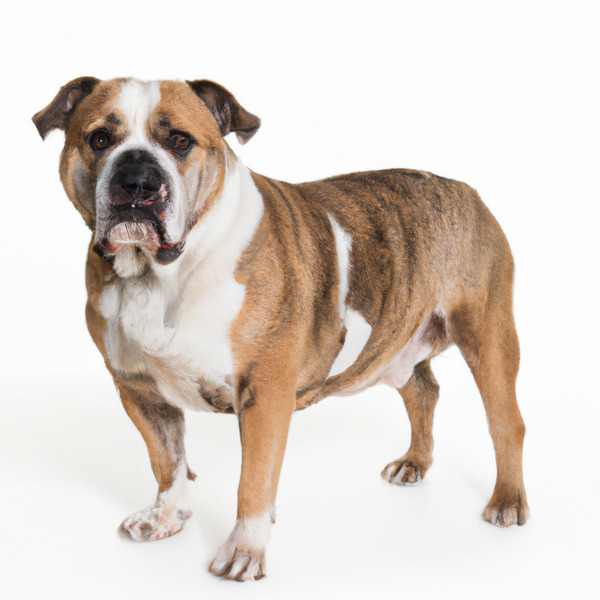Olde English Bulldogge vs. Transylvizsla Hound: Breed Differences and Similarities
Hypoallergenic
Are Olde English Bulldogges or Transylvizsla Hounds hypoallergenic, or neither?
Unfortunately, neither Olde English Bulldogge nor Transylvizsla Hound are hypoallergenic, which may not make them the best choice for dog lovers who suffer from pet allergies.
Temperament
What are the personalities of Olde English Bulldogge and Transylvizsla Hound dogs?
Alert
Courageous
Friendly
Confident
Loving
Strong
Playful
Independent
Energetic
Protective
Courageous
Intelligent
Friendly
Affectionate
Loyal
Territorial
Lively
Gentle
Trainable
Companionable
Cheerful
Quiet
Determined
Easygoing
Willing
Good natured
Enduring
Evenly Tempered
Shedding Level
Do Olde English Bulldogges shed more than Transylvizsla Hounds, or which breed sheds more, Olde English Bulldogges or Transylvizsla Hounds?
Olde English Bulldogge or Transylvizsla Hound dogs are not heavy shedders, but they will lose a significant amount of hair each year. To decrease the amount of shedding, you can regularly brush your Olde English Bulldogge or Transylvizsla Hound. This will remove loose hair and keep their coat growing in the same direction.
Origin
What is the origin of Olde English Bulldogge and Transylvizsla Hound dog breeds?
United States
Hungary
Ancestry
What are the origins of Olde English Bulldogge and Transylvizsla Hound breeds?
English Bulldog, American Bulldog, American Pit Bull Terrier, Bull Mastiff
Vizsla and Transylvanian Hound
Date of Birth
When were Olde English Bulldogge and Transylvizsla Hound breeds first developed?
1971
Unknown
Eye Color Possibilites
What are the eye colors of Olde English Bulldogge and Transylvizsla Hound dogs?
Brown
Amber
Brown
Nose Color Possibilites
What are the natural nose colors of Olde English Bulldogge and Transylvizsla Hound?
Black
Black
Brown
Coat Color Possibilites
What are the natural colors of the coat for Olde English Bulldogge and Transylvizsla Hound breeds?
Brindle
Gray
Fawn
Red
Brown
Brindle
Sable
Pied
Silver
Blue
Fawn
Red
Brown
Black
Coat Length
What is the typical coat length for Olde English Bulldogge and Transylvizsla Hound breeds?
The coat of Olde English Bulldogge and Transylvizsla Hound dogs ranges in length from short to medium.
Coat Density
What is the density of the coat of Olde English Bulldogge and Transylvizsla Hound?
Coat Texture
What is the hair texture of Olde English Bulldogge and Transylvizsla Hound?
Straight
Litter Size
What is the usual litter size for Olde English Bulldogge and Transylvizsla Hound?
An Olde English Bulldogge can have a litter of 11-13 puppies on average. However, it's worth noting that the size of the litters can vary greatly. Factors that can influence litter size include the health of the mother, breeding history, and genetics.
A Transylvizsla Hound can have a litter of 6-8 puppies on average. However, it's worth noting that the size of the litters can vary greatly. Factors that can influence litter size include the health of the mother, breeding history, and genetics.
Adaptability
Olde English Bulldogge and Transylvizsla Hounds are known for their adaptability and versatility. They are capable of adapting well to a wide range of lifestyle changes and living environments, making them great companions for families and individuals of all lifestyles.
Health Issues
Between Olde English Bulldogge and Transylvizsla Hound, which breed is more prone to health problems?
While the Olde English Bulldogge breed is generally healthy, occasional vet check-ups are still necessary to address any health concerns.
Transylvizsla Hounds typically have low vet costs due to their good health, but it's important to monitor their health and seek vet care when necessary.
Major Concerns
What are the major health concerns for Olde English Bulldogge and Transylvizsla Hound breeds?
Bloat
Hip And Elbow Dysplasia
Lymphoma
Tricuspid Valve Dysplasia
Minor Concerns
What minor health issues should be kept in mind when owning Olde English Bulldogge and Transylvizsla Hound?
Hip Dysplasia
Entropion
Allergies
Progressive Retinal Atrophy (PRA)
Occasional Tests
What occasional tests are recommended for Olde English Bulldogge and Transylvizsla Hound breeds?
X-Rays
Physical Examination
Eye Examination
Skin Evaluation
Blood And Urine Analysis
Diagnostic Imaging
Cardiac Test
Social Needs
Olde English Bulldogge vs Transylvizsla Hound social needs comparison
Olde English Bulldogge and Transylvizsla Hound have above average social needs compared to other breeds. They thrive in environments where they have a lot of interaction with humans and other dogs.
Sleeping Need
Which of the two sleeps the most/least: Olde English Bulldogge or Transylvizsla Hound?
Olde English Bulldogges are known for their relaxed and calm nature and enjoy long periods of sleep.
Transylvizsla Hounds sleep less than other breeds but still need adequate sleep for good health.
Mouthiness
Mouthiness Comparison: Olde English Bulldogge vs Transylvizsla Hound?
Roaming urge
Olde English Bulldogge vs Labrador: Running away tendency?
Prey Drive
Olde English Bulldogge or Transylvizsla Hound - which breed has a higher level of prey drive?
Activity Level
Which breed has higher energy, Olde English Bulldogges or Transylvizsla Hounds?
Olde English Bulldogges are medium-energy dogs and typically enjoy socializing and playing casual or even sustained games of chase with other dogs. They may also have occasional periods of barking or racing around the house.
Transylvizsla Hounds are high-energy dogs. They need mental as well as physical exercise. These dogs require a lot of your involvement and without it they can, and will, become problematic dogs.
Tolerance of being left alone
Walks per Week
How many miles should Olde English Bulldogge or Transylvizsla Hound walk each week?
There's really no limit to how far you walk your dog as long as they're comfortable. For Olde English Bulldogge, it's at least 14 miles / week. Just remember to build distance and stamina gradually over time.
There's really no limit to how far you walk your dog as long as they're comfortable. For Transylvizsla Hound, it's at least 15 miles / week. Just remember to build distance and stamina gradually over time.
Activity per Day
Do Olde English Bulldogges or Transylvizsla Hounds require more exercise?
In general most Olde English Bulldogges usually need at least 45 minutes of exercise daily. This can be spread across the day and include all sorts of high-energy activities, like walking, running and playing.
In general most Transylvizsla Hounds usually need at least 60 minutes of exercise daily. This can be spread across the day and include all sorts of high-energy activities, like walking, running and playing.
Grooming
Which breed is easier to maintain in terms of grooming, Olde English Bulldogges or Transylvizsla Hounds?
The Olde English Bulldogge is a low-maintenance breed that doesn't require much grooming.
The Transylvizsla Hound has low grooming needs and is easy to maintain.
Brushing Frequency
What is the recommended brushing frequency for Olde English Bulldogge and Transylvizsla Hound dogs?
Olde English Bulldogge and Transylvizsla Hound should be brushed at least once a week. Of course, you can give them more frequent brushes if you find that they are still shedding a lot.
Brushing Tools
What brushing tools are used for Olde English Bulldogges and Transylvizsla Hounds?
Slicker Brush
Nail Clipper
Slicker Brush
Nail Clipper
Cups
How much food should be given to Olde English Bulldogge or Transylvizsla Hound in cups?
For an average 60-80 pound (27 - 36 kg) Olde English Bulldogge feed 3 cups daily. But, keep in mind, the amount you feed is going to be dependent on the quality of the food you are feeding.
For an average 65-75 pound (29 - 34 kg) Transylvizsla Hound feed 2.5 cups daily. But, keep in mind, the amount you feed is going to be dependent on the quality of the food you are feeding.
Daily Cost
Which breed has a higher daily cost, Olde English Bulldogge or Transylvizsla Hound?
The average cost of an Olde English Bulldogge is somewhere $2.10 - $2.80 per day.
The average cost of a Transylvizsla Hound is somewhere $2.20 - $3.40 per day.
Monthly Cost
Which breed has a higher monthly cost, Olde English Bulldogge or Transylvizsla Hound?
The average per month expenses of an Olde English Bulldogge is between $63 - $84. This makes an average of $756 - $1008 per year. It will be on the higher side when the dog is still small because it will need more frequent visits to the vet, shots.
The average per month expenses of a Transylvizsla Hound is between $67 - $101. This makes an average of $804 - $1212 per year. It will be on the higher side when the dog is still small because it will need more frequent visits to the vet, shots.
Sensitivity Level
How do Olde English Bulldogge and Transylvizsla Hound compare in sensitivity?
This breed is sensitive and requires gentle handling and a calm home environment.
This breed is sensitive to its environment and best suited for patient and understanding families with a consistent routine.
Apartment Friendly
Which breed is more apartment-friendly: Olde English Bulldogge or Transylvizsla Hound?
Olde English Bulldogges make excellent apartment dogs, being fairly active indoors and not requiring a yard.
Transylvizsla Hounds are good apartment dogs as long as they get enough exercise and stimulation outside of the apartment.
Child Friendly
Do Olde English Bulldogges or Transylvizsla Hounds have a friendlier temperament towards children?
Olde English Bulldogge and Transylvizsla Hound are kid-friendly dogs. They are good with children and excellent dogs with children if they are socialized and trained at a young age.
Senior-friendly
Which dog is more suitable as a pet for the elderly - Olde English Bulldogge or Transylvizsla Hound?
Cat Friendly
Do Olde English Bulldogge or Transylvizsla Hound breeds have a better compatibility with cats?
Olde English Bulldogges and Transylvizsla Hounds are an average cat friendly dog. They do well with cats, even more if raised together from puppyhood.
Dog Friendly
Which breed is more sociable with other dogs: Olde English Bulldogge or Transylvizsla Hound?
Olde English Bulldogges are average in their friendliness towards other dogs, and socialization can help.
Transylvizsla Hounds are friendly and active companions, and can be good family pets, though their friendliness towards other dogs may vary.
Pet friendly
How do Olde English Bulldogge or Transylvizsla Hound dogs interact with other pets?
Stranger Friendly
Which breed is more friendly with strangers: Olde English Bulldogge or Transylvizsla Hound?
Olde English Bulldogges are averagely friendly around strangers but benefit from early socialisation.
Transylvizsla Hounds are friendly but may bark at strangers, and training is easy due to their intelligence.
Playfulness
Which breed is more playful between Olde English Bulldogge and Transylvizsla Hound?
Olde English Bulldogges are not known for being a highly playful breed.
Transylvizsla Hounds are very playful, so adopting an older one might be a better option for a more relaxed experience.
Trainability
How do the trainability levels of Olde English Bulldogges and Transylvizsla Hounds compare?
Olde English Bulldogges may require more time and patience to learn commands, but with consistency, they can be trained.
Transylvizsla Hounds are popular for their ease of training and quick learning ability.
Compare Olde English Bulldogge with other breeds
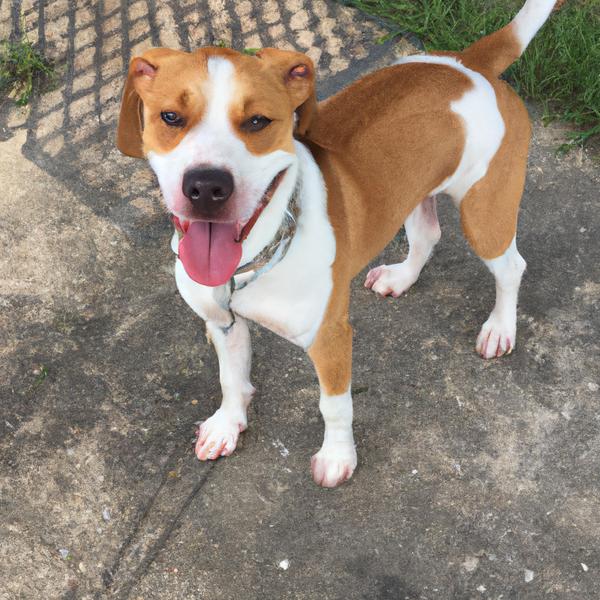
Beagle Pit
Olde English Bulldogge vs Beagle Pit
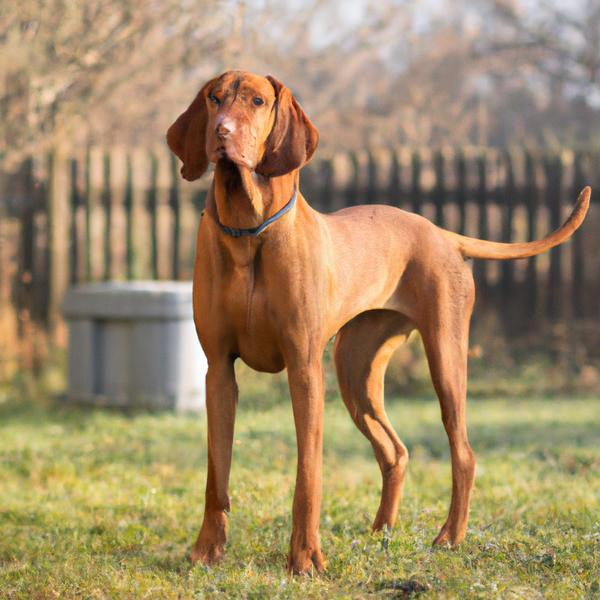
Transylvizsla Hound
Olde English Bulldogge vs Transylvizsla Hound
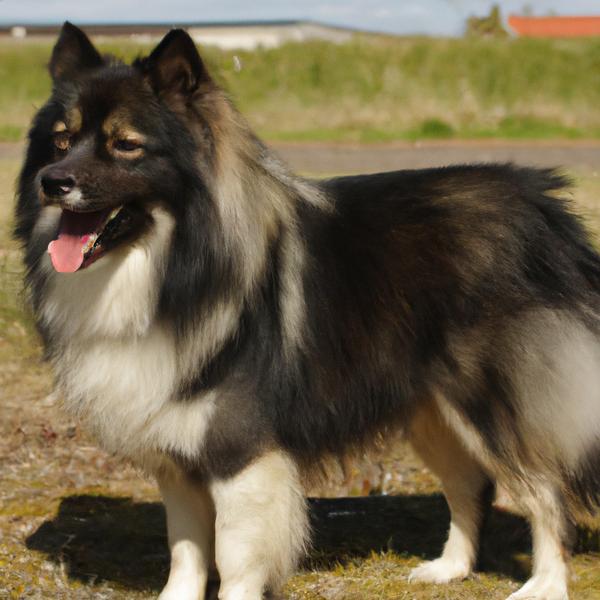
Eskland
Olde English Bulldogge vs Eskland
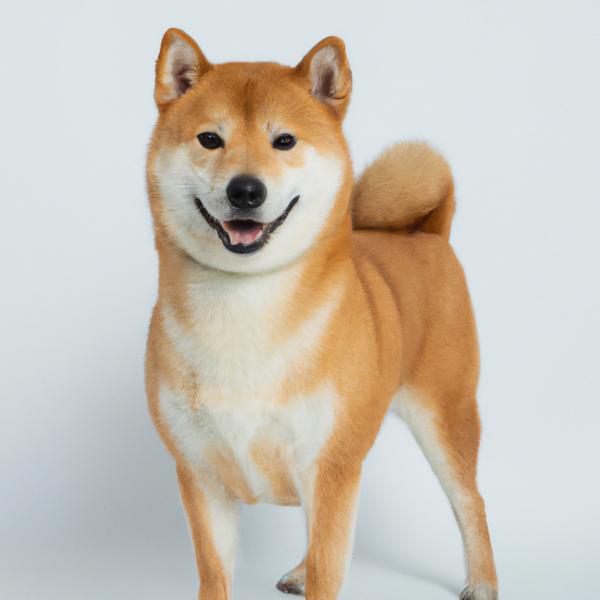
Siberian Shiba
Olde English Bulldogge vs Siberian Shiba
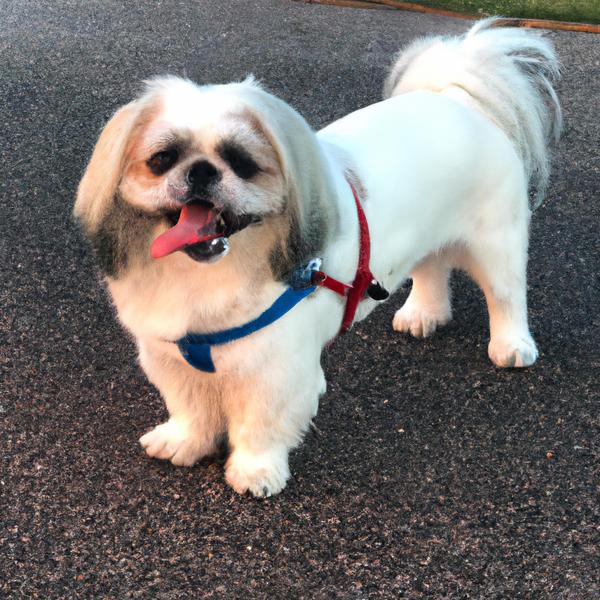
Silkytie
Olde English Bulldogge vs Silkytie
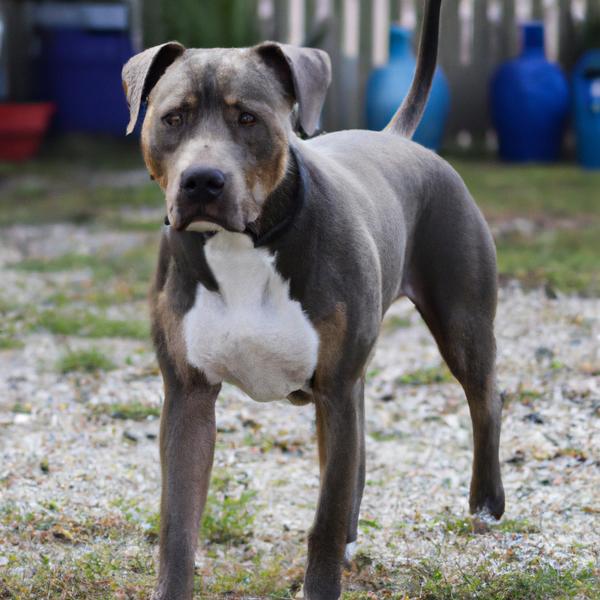
Greybull Pit
Olde English Bulldogge vs Greybull Pit
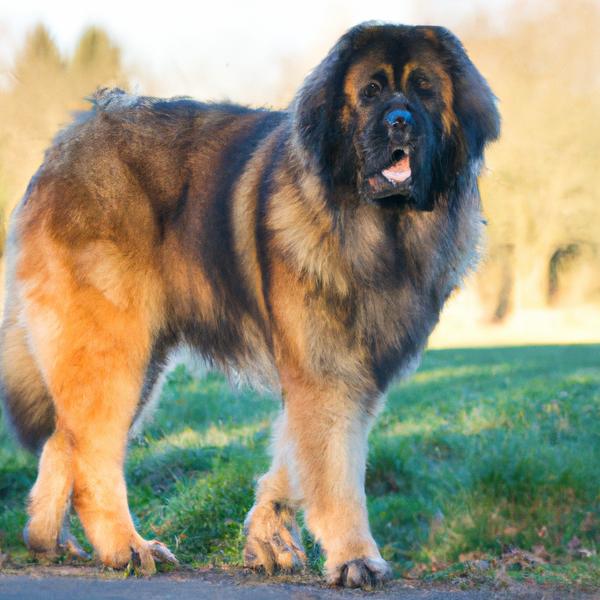
Leonberger
Olde English Bulldogge vs Leonberger
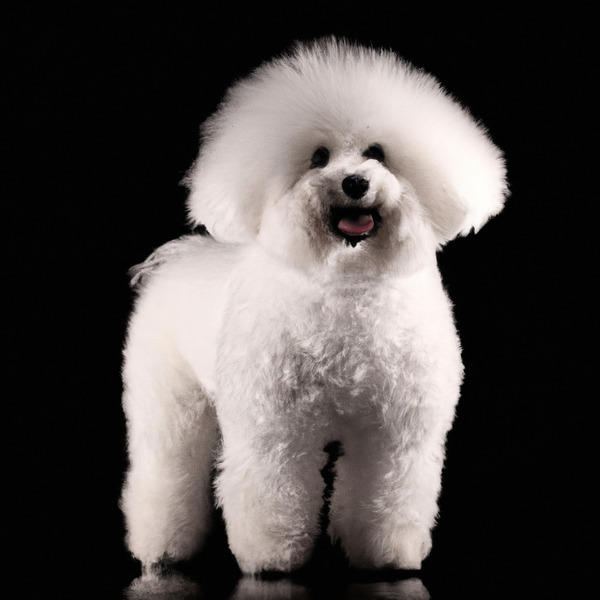
Bolognese
Olde English Bulldogge vs Bolognese
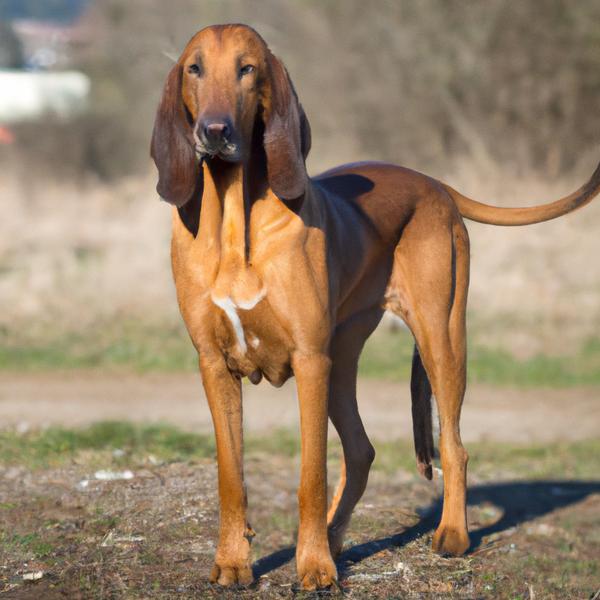
Labloodhound
Olde English Bulldogge vs Labloodhound
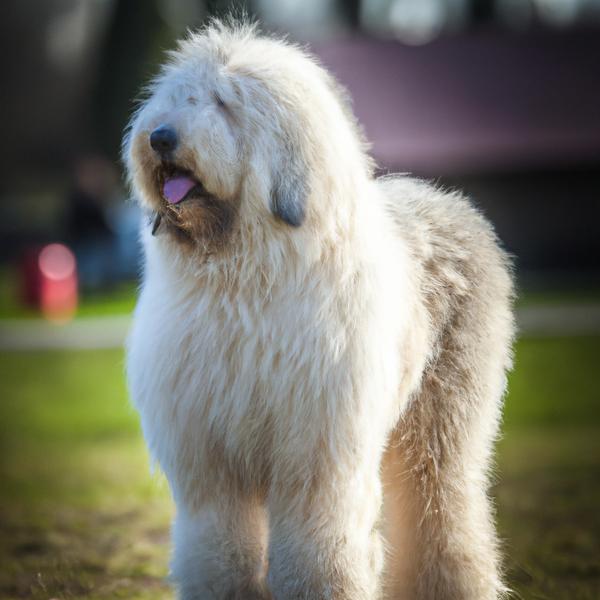
Komondor
Olde English Bulldogge vs Komondor
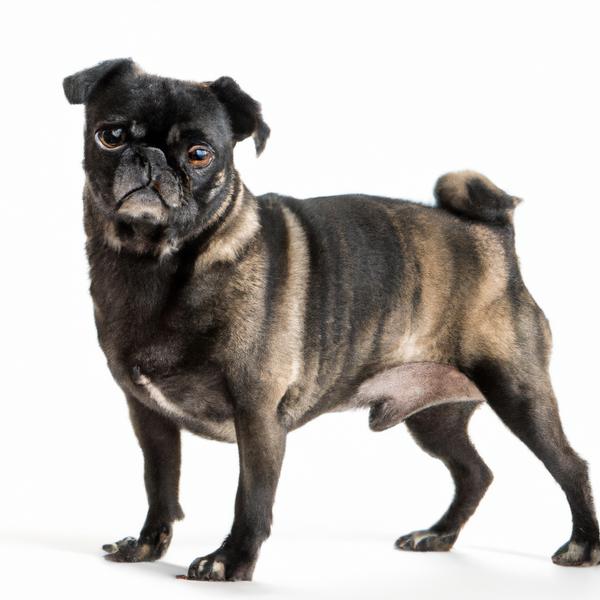
Pugillon
Olde English Bulldogge vs Pugillon
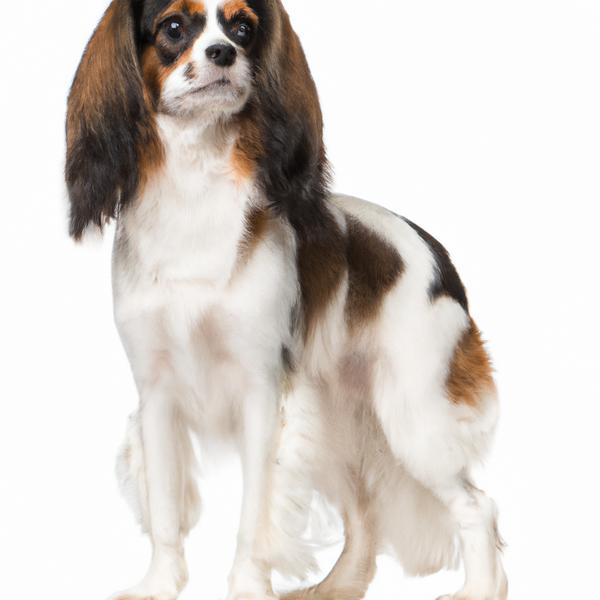
English Toy Spaniel
Olde English Bulldogge vs English Toy Spaniel
